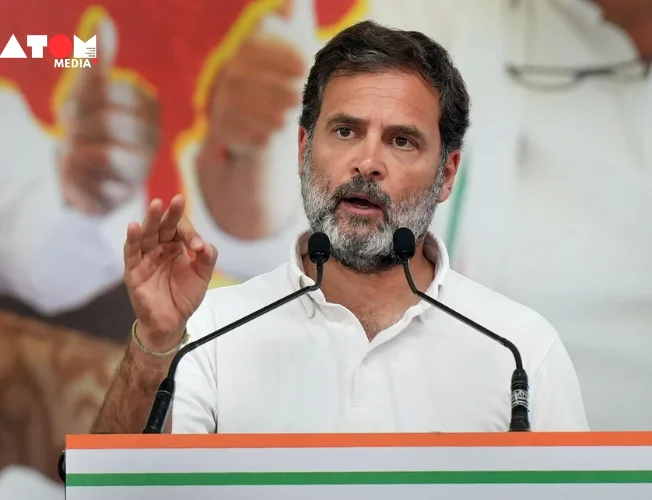Indian government has historically been characterised by dynasty politics, which is defined by the continuation of political power within families. This topic has resurfaced due to remarks made recently by Rahul Gandhi, a former leader of the Congress Party, especially in light of the BJP’s appointment of leaders with political experience to Prime Minister Narendra Modi’s council of ministers. We will examine Gandhi’s criticism in more detail in this piece, as well as how it relates to Indian politics and the larger discussion of nepotism.
Understanding Dynasty Politics:
The practice of familial succession within political parties, in which leadership positions are frequently handed down from one generation to the next, is known as “dynasty politics.” This tendency is not specific to India; it is evident in many other nations as well. However, dynasty politics have been especially common in India, where many political dynasties have held substantial power throughout the years.
Rahul Gandhi’s Critique:
The heir of the Nehru-Gandhi family and the former head of the Indian National Congress (INC), Rahul Gandhi, has often been accused of carrying on dynastic politics. Gandhi, though, took a different tack recently and accused the BJP of carrying out the same actions that they frequently condemn on social media.
Following Prime Minister Modi’s cabinet reshuffle, which saw the appointment of various political figures to important ministerial positions, Gandhi delivered his criticism. Gandhi aimed to reveal what he perceived as hypocrisy inside the ranks of the ruling party by drawing attention to the presence of people with familial political links in the BJP-led administration.
The Alleged Hypocrisy of the BJP:
The BJP’s position on dynastic politics is called into question by Gandhi’s criticism. The party has always presented itself as an opponent of nepotism and an advocate of meritocracy, yet the Modi government contains leaders who come from political families, which runs counter to this claim. The BJP’s credibility on this subject is undermined by its elevation of people from political families, such as JP Nadda and Piyush Goyal.
Key Figures in Gandhi’s Critique:
Prominent politicians with political connections to their families, such Jayant Chaudhary and HD Kumaraswamy, are named as ministers by Gandhi. While Jayant Chaudhary, the grandson of former Prime Minister Chaudhary Charan Singh, is a well-known figure in Uttar Pradesh, HD Kumaraswamy, the son of former Prime Minister HD Deve Gowda, held the position of Chief Minister of Karnataka.
In addition, Gandhi is also examining a number of former Congress leaders who have joined the BJP. The fact that dynasty politics in India are bipartisan is further demonstrated by the politicians who have switched from the INC to the BJP, including Jyotiraditya Scindia, Jitin Prasada, and Ravneet Singh Bittu.
The Larger Debate on Dynasty Politics:
Gandhi’s criticism rekindles the existing discussion about Indian government’s use of dynasty politics. While the Congress and other opposition parties have frequently been singled out by the BJP for continuing dynasty politics, Gandhi’s comments highlighted the frequency of such behaviour among the ruling party’s own ranks.
Beyond party lines, the discussion of dynasty politics touches on more general issues of representation, meritocracy, and democratic ideals. Dynastic politics is criticised for allegedly undermining the values of fair competition and equality of opportunity by allowing people to rise to positions of power solely on the basis of their family connections rather than their skills or qualifications.
Result
The intricate intricacies of Indian politics are highlighted by Rahul Gandhi’s criticism of dynasty politics in the BJP-led administration. Gandhi’s remarks emphasise the need for increased scrutiny and responsibility within political parties, regardless of their ideological affiliations, even if dynasty politics has long been a staple of Indian governance. The values of meritocracy, justice, and inclusivity must be upheld by Indian democracy as the discussion over nepotism and dynastic politics develops.
Read more: Marketing News, Advertising News, PR and Finance News, Digital News





